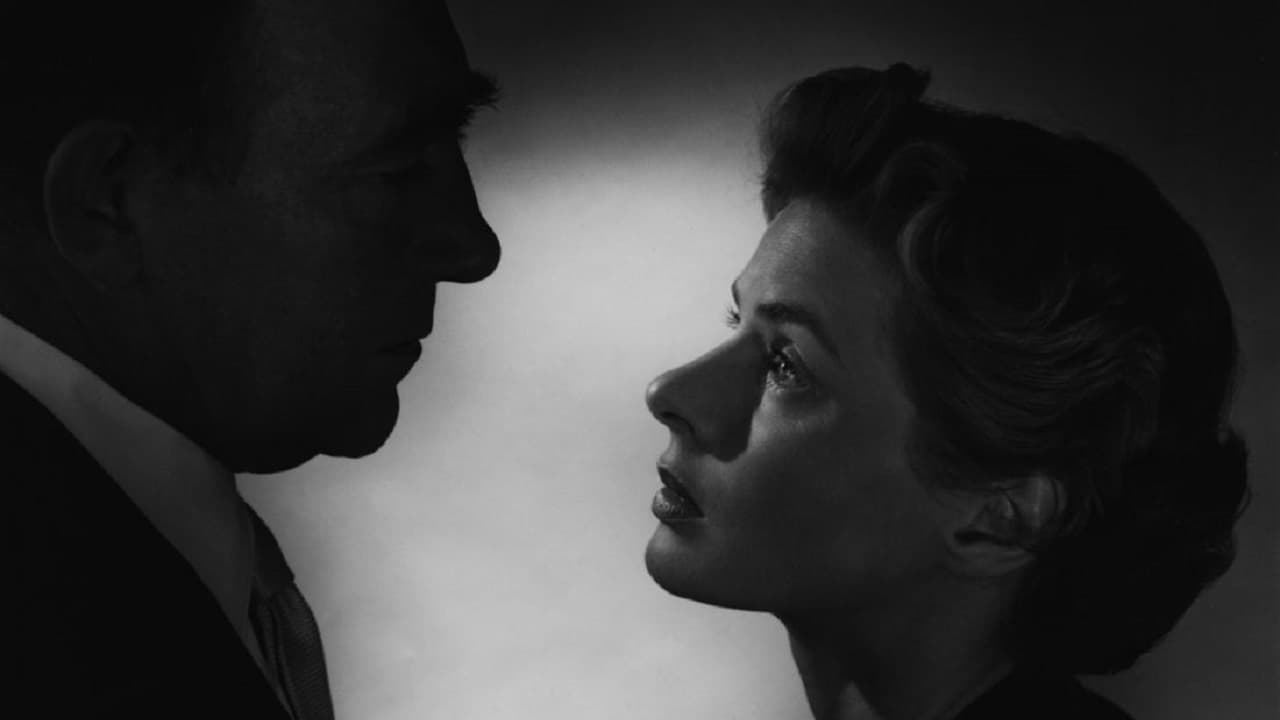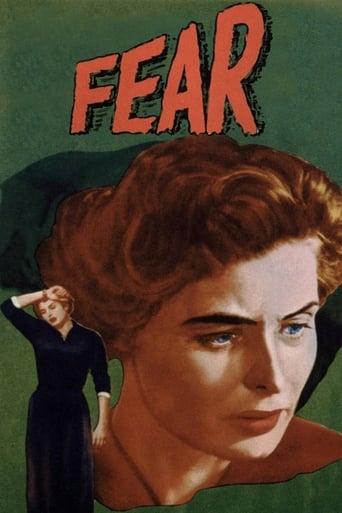

"Non credo più all'amore (La paura)" or simply "Fear" is a co-production between West Germany and Italy that resulted in a black-and-white movie from 1954, so this one is already way over 60 years old. It was co-written and directed by Roberto Rossellini and the main character is once again played by his (then still) wife Ingrid Bergman. According to IMDb, this one is slightly longer than 80 minutes, but the version I saw was even 10 minutes shorter, so it is not a long movie at all and there exist several versions. The original work this is based on is by Stefan Zweig and I suggest the recent Maria Schrader video to everybody who is curious about the author. Zweig's involvement may also have to do with the film having the main language German, but I am not too sure if this is accurate looking at the film's title and also the cast. At least the version i watched was exclusively Italian with English subtitles.This is a story about fear as the title already states and relationship struggles play a major role as well as in many other Bergman films. Moonlighting and blackmailing are crucial components in the story here, but lets be honest, all in all it is really a major Bergman showcase as well and honestly beyond her acting I think the story is not as good as it could have been. If you are a Bergman fan, you will probably enjoy this one as she has several scenes in which she can shine, but I myself have seen not too much from her yet and what I saw here does not really get me curious about her other works or Rossellini's. I myself was glad that the film was over relatively quickly as I cared little for the story or character(s) eventually. I give it a thumbs-down and like I said I only recommend it to the very biggest Bergman fans.
... View MoreA simple story about a simple thing, blackmail. Ingrid Bergman and her husband work in a facility that is trying to work on medical issues, such as the destruction of heart tissue. Bergman, much younger than her husband, has a fling with a playboy type. In the process, an evil woman blackmails her and with each payoff, the amount increases. The film is full of tension as Bergman rushes to get more to this woman. Finally, a ring that means a great deal to the husband is taken. She has to get it back. The events that follow are rather hard to swallow and seem, for me, to diminish the story. Bergman does a slow burn when she gets to that "I've had enough" stage. Things become way too contrived. After seeing the ending, say to yourself, "Is this a real conclusion, even in a 1954 film drama. Bergman, as always, does a really nice job.
... View MoreWhenever I see La Paura I think of it as a companion piece to Eyes Wide Shut, or maybe it is the other way around. Adultery makes both films tick but in different ways. I think Phillip French was right on the money when he pointed out a Wizard of Oz thing in Kubrick's last work. Like Dorothy, Tom and Nicole go through fantasies and nightmares and at the end Dorothy's reassuring childish motto "there's no place like home" is ironically updated to the adult circumstantial adage "there's no sex like marital sex". Kubrick's take is intellectual, he never leaves the world of ideas to touch the ground. He taunts the audience first with an erotic movie and then with a thriller and refuses to deliver either of them. He was married to his third wife for 40 years, until he died. Rossellini was still married to Ingrid Bergman when he directed La Paura; they had been adulterous lovers and their infidelity widely criticized La Paura is a tale, a noirish one. The noir intrigue is solved and the tale has a happy ending. The city is noir; the country is tale, the territory where childhood is possible. The transition is operated in the most regular way: by car, a long-held shot taken from the front of the car as it rides into the road, as if we were entering a different dimension. Irene (Bergman) starts the movie: we just see a dark city landscape but her voice-over narration tells us of her angst and informs us that the story is a flashback, hers. Bergman's been cheating on her husband. At first guilt is just psychological torture but soon expands into economic blackmail and then grows into something else. From beginning to end the movie focuses on what Bergman feels, every other character is there to make her feel something. Only when the director gives away the plot before the main character can find out does he want us to feel something Bergman still can't. When she finds out, we have already experienced the warped mechanics of the situation and we may focus once again on the emotional impact it has on Bergman's Irene. In La Paura treasons are not imagined but real, nightmares are deliberate and the couple's venom suppurates in bitter ways. Needless to say, Ingrid has another of her rough rides in the movies but Rossellini doesn't dare put her away as he did in Europa 51, nor does he abandon her to the inscrutable impassivity of nature (Stromboli). His gift is less transcendent and fragile than the conclusion of Viaggio in Italia. He just gives his wife as much of a fairy tale ending as a real woman can have, a human landscape where she can finally feel at home. Back to the country, a half lit interior scene where shadows suggest the comfort of sleep. After all, it's the "fairy godmother" who speaks the last words in the movie.
... View MoreI viewed a copy of a copy on video of this film and so the video quality was not that great. First, what did I like and not like? I didn't like the beginning or ending, but the rest of the movie was very good. Ingrid Bergman does a very fine job as the wife who has a secret to hide and will go to great lengths out of fear, hence the title of the movie, to prevent her husband from finding out. As the husband, Mathias Wieman does an excellent job playing the part of the kind, understanding Professor Wagner who is not as he seems. Overall, the film is a fine psychological thriller in the manner of Hitchcock and I won't give away the film noirish plot twist or the problematic, to me, ending. This movie is little known but well worth a look.
... View More